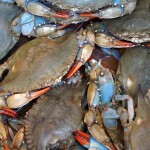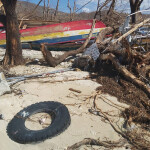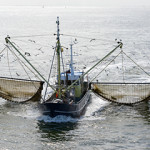As consumers demand sustainable seafood, MSC ecolabel delivers trust and transparency
Sponsored

As scientists worldwide warn that ocean health and biodiversity are at a tipping point, younger generations in Asia, and across the world, are becoming increasingly discouraged from eating seafood due to its potential environmental impacts, casting the seafood industry’s future in an uncertain light.
The Marine Stewardship Council (MSC), an international nonprofit with a mission to end overfishing, aims to address that uncertainty by setting the world’s leading standards for sustainable fishing and seafood supply chain assurance.
“At a time when the seafood industry is facing such scrutiny, it’s more important than ever to assure consumers that your seafood products are sustainably sourced,” MSC Program Director for Oceania and Singapore Anne Gabriel said.
"The results show that concern for the ocean’s health is growing — especially among Asia’s younger generation. From the tuna markets of Japan to clams in Southeast Asia, protecting marine life is vital for our region’s food security and cultural identity,” said Gabriel. “By supporting sustainable fisheries, we can safeguard a valuable food source for this and future generations, while keeping Asia’s seafood traditions alive."
MSC uses its fisheries certification program and ecolabel to recognize sustainable fishing practices and incentivise improvements. According to the organization, over 744 fisheries worldwide were engaged in the MSC program as of 31st March 2025, all following a benchmark for sustainable fishing practices.
In its 2024 annual report, MSC found that even amid economic hardship, consumers still have an appetite for sustainable fish. Between April 2023 and March 2024, 1.2 million tons of MSC labelled seafood was sold, with sales in Asia growing 35 percent in South Korea and 20 percent in China.
"Our research shows we need to better connect with young people across Asia, helping them see that sustainable seafood is not only healthy and convenient, but also an investment in our shared future,” said Gabriel. “Choosing seafood with the MSC ecolabel means supporting fishing communities from Indonesia to Korea and protecting the ocean for generations to come."
Adding to consumer confidence, MSC’s Chain of Custody Standard ensures that all seafood sold with the MSC ecolabel can be traced back to a certified sustainable fishery, avoiding any issues of mislabeling that can be common within complex supply chains.
"The MSC ecolabel is more than a mark — it’s a promise. It supports fishing practices that keep our oceans healthy, while giving consumers confidence in what they’re eating,” said Gabriel. “Seafood is one of Asia’s richest sources of protein and nutrients, and with sustainable sourcing, we can ensure it remains on our tables for generations."
Despite growing momentum for sustainability, many fisheries still face obstacles to achieving sustainability. Through its Improvement Program, the MSC aims to bring 30 percent of the world’s wild-caught fisheries to a well-managed, sustainable level by 2030. The program is designed to help fisheries of all sizes and locations implement the changes needed to achieve sustainability and meet the MSC Fisheries Standard.
MSC also partners with various organizations around the world, including Singapore Oceanarium, Taronga Zoo Sydney, and National Maritime Museum of Korea, to educate the public on the impacts of overfishing and the part they can play in it. The organization works with retailers and foodservice sectors in Asia and beyond to drive interest towards MSC-certified species in the supply chain, such as cod, hake, toothfish, and lobster.
Despite the growing popularity of sustainable fishing practices, according to Gabriel, now is not the time for complacency. The Food and Agriculture Organization of the United Nations (UN FAO) 2025 report highlights the ongoing challenge of overfishing – increasing at a rate of approximately 1 percent per year in recent times – and the need for improved fisheries management.
"The progress we are seeing is encouraging, but many challenges remain — particularly in smaller-scale fisheries across Asia and the Pacific, where fishing is not just a job but a way of life,” Gabriel said. “In countries from the Philippines to India, sustainable practices can protect both livelihoods and marine ecosystems. With coordinated science, responsible management and collective will, we can ensure our oceans continue to sustain communities and cultures across the region."
Find more information on the MSC Fisheries Standard and MSC Chain of Custody Standard here.







